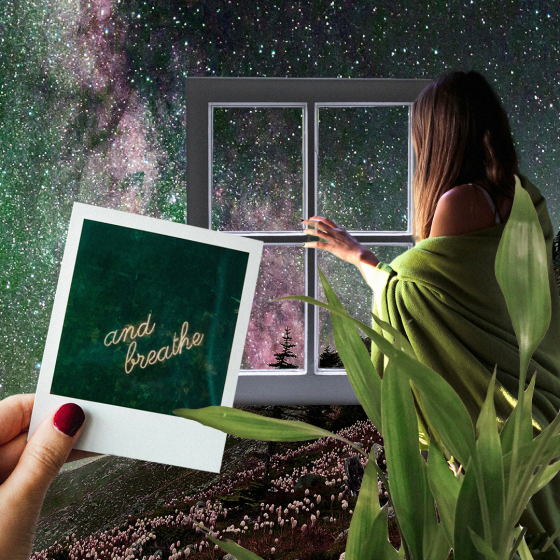“I mean, I live alone. So, by the third episode, I gave up and started watching it with my vibrator,” Kate, Birmingham.
When the popular Irish radio show ‘Liveline’ ran a segment on BBC’s Normal People. A woman named Mary rang to complain. “I imagine it was like something you’d expect to see in a porno movie, certainly not for family viewing.”
The popular adaption of Sally Rooney’s 2018 novel has made waves across the UK and Ireland, for both the story and for being (according to The Sun newspaper) the ‘BBC’s raunchiest drama’. For those that read the titular book, sex is an essential part of the story – highlighting both the intimacy and disfunction of Connell and Marianne’s relationship. And, yet one of the unexpected consequences of this has been a marked improvement to our own sex lives.
“Honestly, I’ve been struggling with my sex drive a lot. That show definitely made me want to have sex – maybe it’ll help other people who are struggling,” Melody*, London.
What is it about Normal People that seems to have awoken something? I consulted Sue Sutherland from The Feel Institute. Sue is a Somatic Sex Coach, BDSM Practitioner, Sex Educator and, most importantly, a fan of the show.
“The first thing to say is that the show is arousing. But, the comparison to pornography isn’t quite correct. While I’m an advocate for ethical and consent-based porn, it’s important to understand that the connotations of pornography for some are often negative. Porn is almost always focused on male pleasure and intimacy is rare. Whereas Normal People includes a rarely seen female gaze. There’s a focus on connection that we don’t often see in pornography. And I think that’s why it has struck a chord.”
A quick poll on Instagram with over 400 respondents highlights that 77 per cent would prefer to watch Normal People over traditional pornography.
Sue explains the importance of the softer elements that were involved in Normal People, “there was such a focus on consent. With Connell consistently asking Marianne if things were okay. It was a brilliant example of good eye contact and being present in the moment. I think the other important aspect was the conversation afterwards between the characters and, more importantly, for the viewers watching at home. It’s a conversation starter, which could be a really positive vehicle for communication about what we want from our own sex lives. It’s a lot easier to see something on the screen and afterwards say ‘would you want to try that?’”
I was also curious to get Sue’s take on BDSM. Specifically, as the portrayal in Normal People seems to directly link Marianne’s interest in kink to her personal trauma. Some people within the BDSM community feel this is a tired stereotype. It’s not like we haven’t seen this before, Fifty Shades of Grey famously associated violent sex, without the consent that is so present in Normal People. Creating the ‘submissive virgin’ trope that we’re so used to.
“Firstly, it’s positive that BDSM was covered in the show. It’s a topic that a lot of mainstream media steers away from, so that in itself is a positive step. There is a stereotype that kink is only explored by those that have suffered trauma and, in my experience, for many this isn’t the case. There will, of course, be people that can relate to this, the desire to explore their emotions through sex is common. So, while this is one example of BDSM, it’s not at all the only example. It does, however, remind us of the importance of consent and potentially a safe word.”
The other important element of this conversation is the number of people that are currently dissatisfied with their sex life. We’ve previously highlighted this topic, but, to Sue, it’s not a surprise. “There are a lot of people not having, or just not enjoying sex. A lot of people have been encouraged to not to talk about their sex lives – there’s minimal sexual education around female pleasure, so, how do we expect people to learn?”
And, it’s this lack of education that Sue believes has resulted in the discourse around female pleasure. “A lot of us enter into a relationship and completely stop masturbating. I equate it to a song that you liked as a teenager. At first, you can’t stop listening to it, you play it constantly, that same song over and over, but after a while, it gets boring. Played too much and there’s nothing worse than hearing it on the radio for the hundredth time. It’s the same with how we masturbate and seek orgasm. It’s an ever-changing process. Variety truly is the key to a good sex life, but without masturbation, it’s hard to understand what we did like, and what we like now.
Variety truly is the key to a good sex life, but without masturbation, it’s hard to understand what we did like, and what we like now.
Looking at your sex life with a fresh pair of eyes is essential. It’s really important to check-in and ensure that you’re still enjoying the sexual side of your relationship. The element of rediscovery can really improve your relationship, so it’s important to explore it.”
So, what, if anything, can we take from our Normal People experience?
“The biggest thing we can take is the importance of communication and non-coercive responses. For example, it’s fine to be disappointed if your partner doesn’t want to have sex, but can you create an environment where there isn’t pressure on them to perform? The focus on consent in Normal People is really how we should all speak to our partners – the ‘is this what you want?’ is so important.”
“I mean, think back to the first time you had sex, just compare it to Marianne and Connell’s first time. Marianne’s space to be clear, nervous and dominant and Connell’s caring, connecting communication. How was yours by comparison? How can you learn from this experience?”
From Marianne’s ridiculously beautiful wardrobe to Connell’s chain, there are plenty of things that we can take from Normal People. But, I think the most important is an honest portrayal of sex. Awkward, cumbersome and wonderful.
And, regardless of whether you finished feeling horny or heartbroken. Either way, this show will have you reaching for the tissues.









